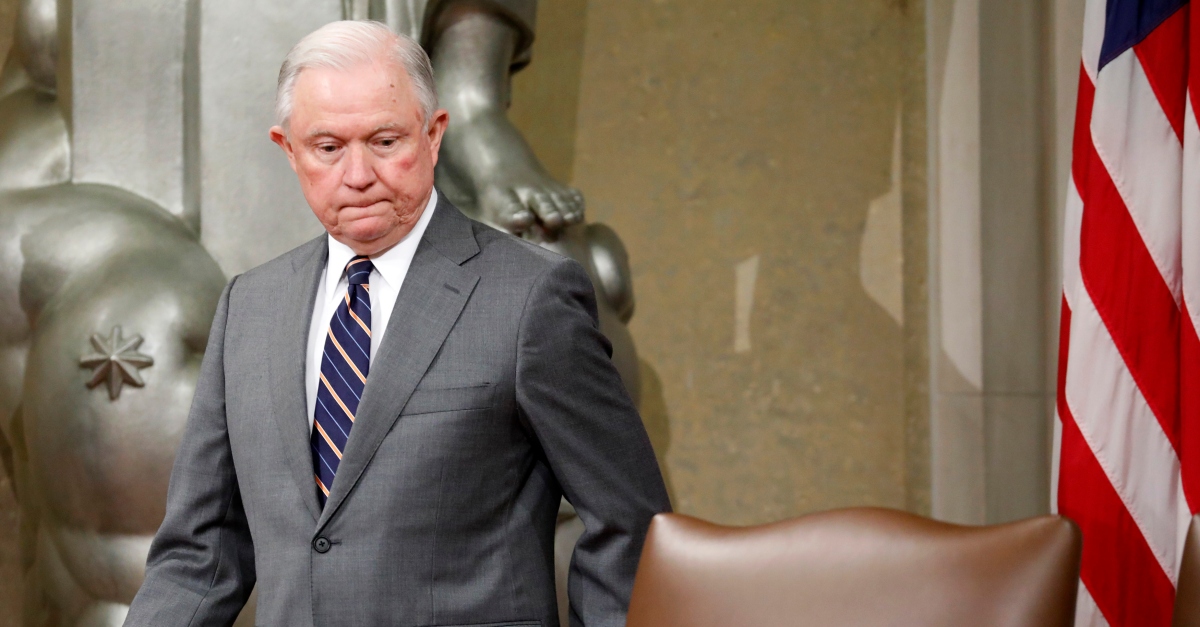
Former U.S. Attorney General Jeff Sessions allegedly had subordinates lie on his behalf about his knowledge of whether he was under investigation at the time he fired former FBI Deputy Director Andrew McCabe. Legal experts have already said that they believe Sessions likely violated federal conflict of interest rules.
The allegation was chronicled Wednesday by the New York Review of Books (NYRB), which recently published an in-depth story about chatty prosecutors on Special Counsel Robert Mueller‘s team.
Sessions is accused of having his “allies” lie on his behalf in March 2018. According to report, Sessions “knowingly fired the deputy FBI director (and later, acting director) who’d opened and supervised that criminal investigation” — the criminal investigation that resulted in Mueller’s appointment as special counsel. Sessions recused himself from that investigation, much to the ire of President Donald Trump. Sessions eventually resigned from his post, Matthew Whitaker took over in an acting role, and William Barr is the current AG.
NYRB, citing a “government official with first-hand knowledge of the matter,” said that Sessions “instructed aides to make false statements in briefings to the press.” But that’s not all. Sessions’ reportedly “played a leading role in more broadly carrying out President Trump’s relentless campaign to undermine and discredit the FBI.”
It is public knowledge that Sessions was investigated for perjury and lying to Congress about contact with then-Russian ambassador Sergey Kislyak. Robert Mueller concluded that the evidence for a charge was not sufficient. But that’s not the story here.
The crux of the matter was this, per NYRB:
In early 2017, Sessions had been investigated for perjury and lying to the Senate Judiciary Committee during his confirmation hearing to be attorney general about his contacts with a Russian diplomat during the 2016 presidential campaign. Sessions’s testimony was demonstrably misleading, but as the Mueller Report, released April 18, noted of its investigation of the matter: “evidence was insufficient to… obtain or sustain a conviction for perjury or false statements.”
Sessions had claimed that he had not known he’d been investigated for perjury until sometime during March 2018, the month he fired McCabe, when prosecutors had informed Sessions’s personal attorney that there was “insufficient” evidence to charge him.
Legal experts cited in the story, on the other hand, were quite forthcoming about their thoughts. The conclusion drawn was the Sessions actions “likely violate[d] federal conflict of interest regulations.”
Stanford University Law Prof. Deborah Rhode said that the Sessions may have violated the American Bar Association’s Model Rules of Professional Conduct, while Washington University Law Prof. Kathleen Clark said Sessions may have violated ethics rules for federal employees.
The reporter on the story, Murray Waas, said neither Sessions’ attorney Chuck Cooper nor the special counsel commented.
[Image via Aaron P. Bernstein/Getty Images]